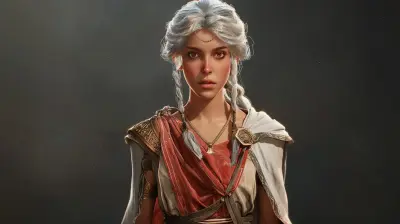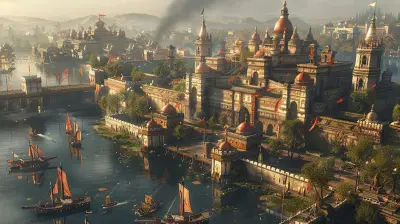Building Bonds: How Companions Shape Your Experience in Fantasy RPGs
10 July 2025
So, you’re diving deep into yet another fantasy RPG. Sword in one hand, magic spell ready in the other—ready to slay dragons, loot treasure, and save the world (again). But hang on, adventurer, let me ask you this: what’s an epic quest without a solid crew to back you up?
Whether it’s the sassy rogue who never shuts up, the gruff warrior who’s all brawn but low-key a softie, or the mysterious mage who’s clearly hiding something—they’re more than just sidekicks. They shape your journey, challenge your decisions, and sometimes even steal your heart (looking at you, romancable NPCs).
Let’s get into why companions in fantasy RPGs are the secret sauce that turn a good game into an unforgettable one.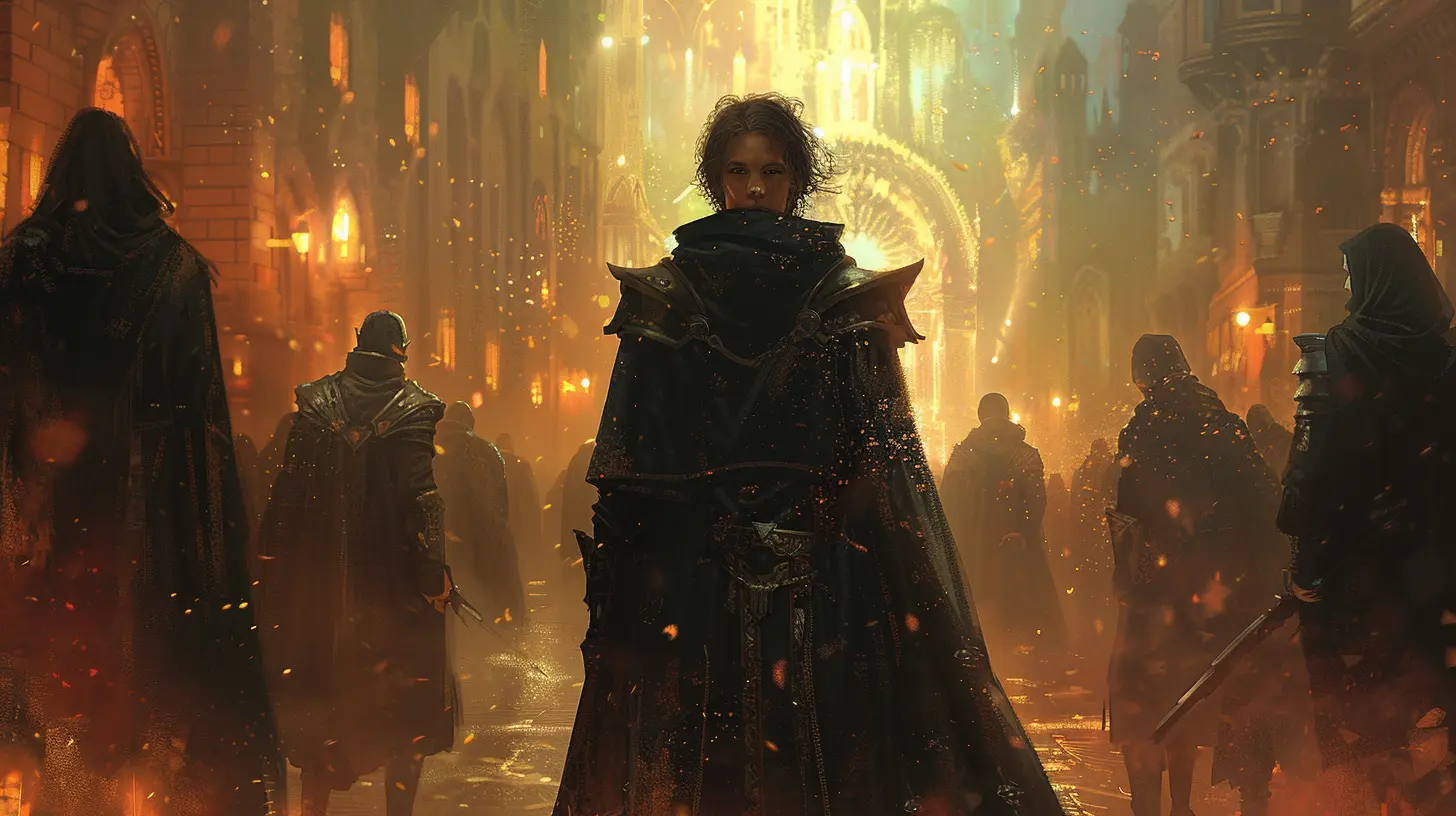
Why Companions Are More Than Just Tagalongs
Let’s be real—companions are not just extra muscle during boss fights. Sure, they’ve got your back in combat, but their real magic kicks in when you start talking to them. They bring your game world to life.Games like Dragon Age, Mass Effect (yeah, sci-fi, but still good fit), and Skyrim prove that your team isn’t just padding—they’re integral. The snarky banter, deep backstories, and unexpected loyalty? That’s what gets you emotionally invested.
Without companions, it’s like playing on mute. Who's gonna judge your morally questionable choices or cheer when you land a critical hit? Companions are your digital crew, your squad, your ride-or-dies.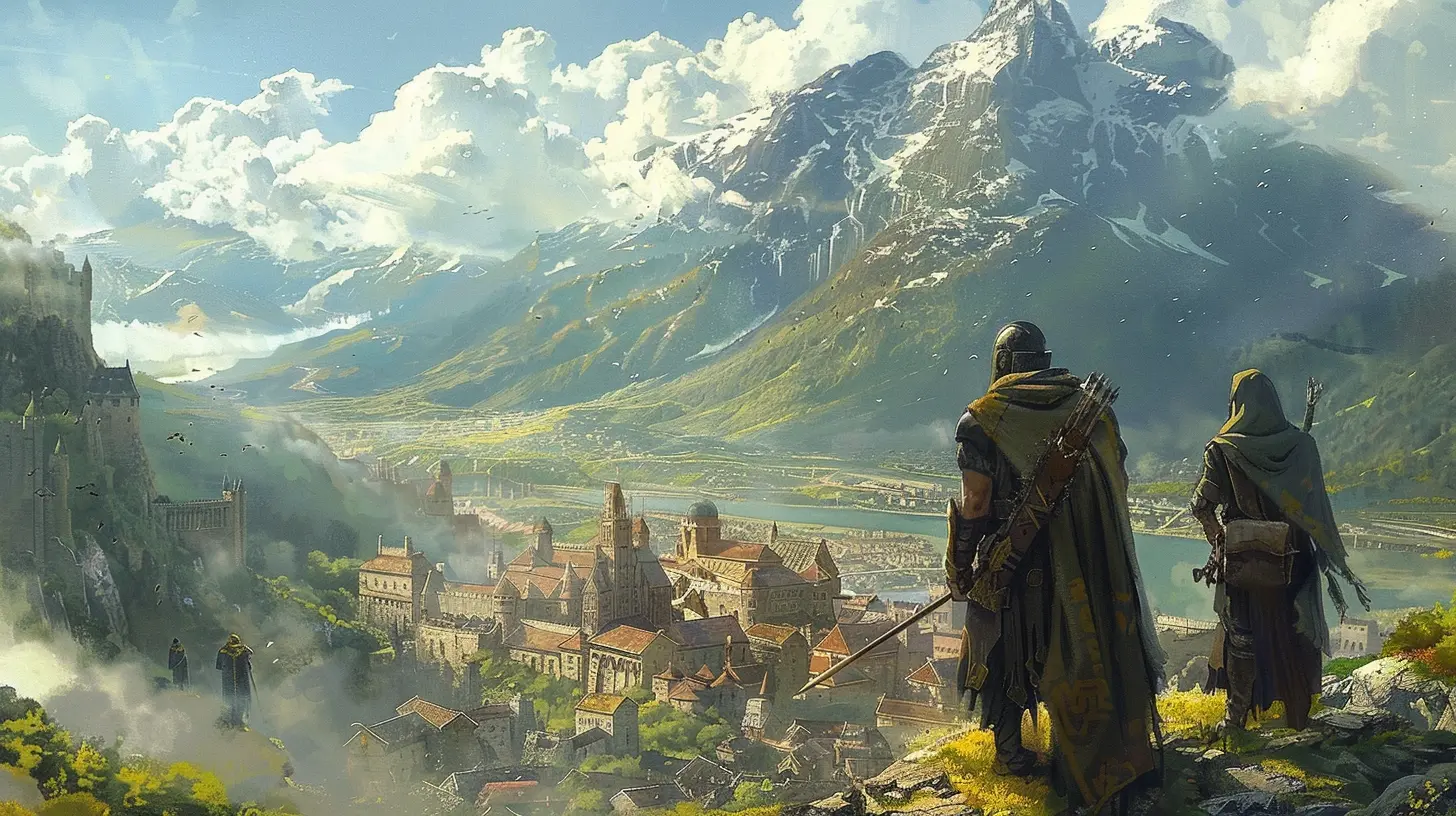
The Emotional Rollercoaster: Getting Attached (And Sometimes Heartbroken)
Ever cried over a video game character? Yeah, same. That moment when a companion sacrifices themselves, betrays you, or confesses their love—chef’s kiss, emotional devastation-style.Fantasy RPGs are built to make you care. The better the writing, the more those companions feel real. And when games throw your favorite companion into danger? You’re reloading from three hours back just to save them.
Take Garrus from Mass Effect, or Astarion in Baldur’s Gate 3—people aren’t just playing these games; they’re falling hard for these characters. Emotional depth = player obsession. And honestly? We’re here for it.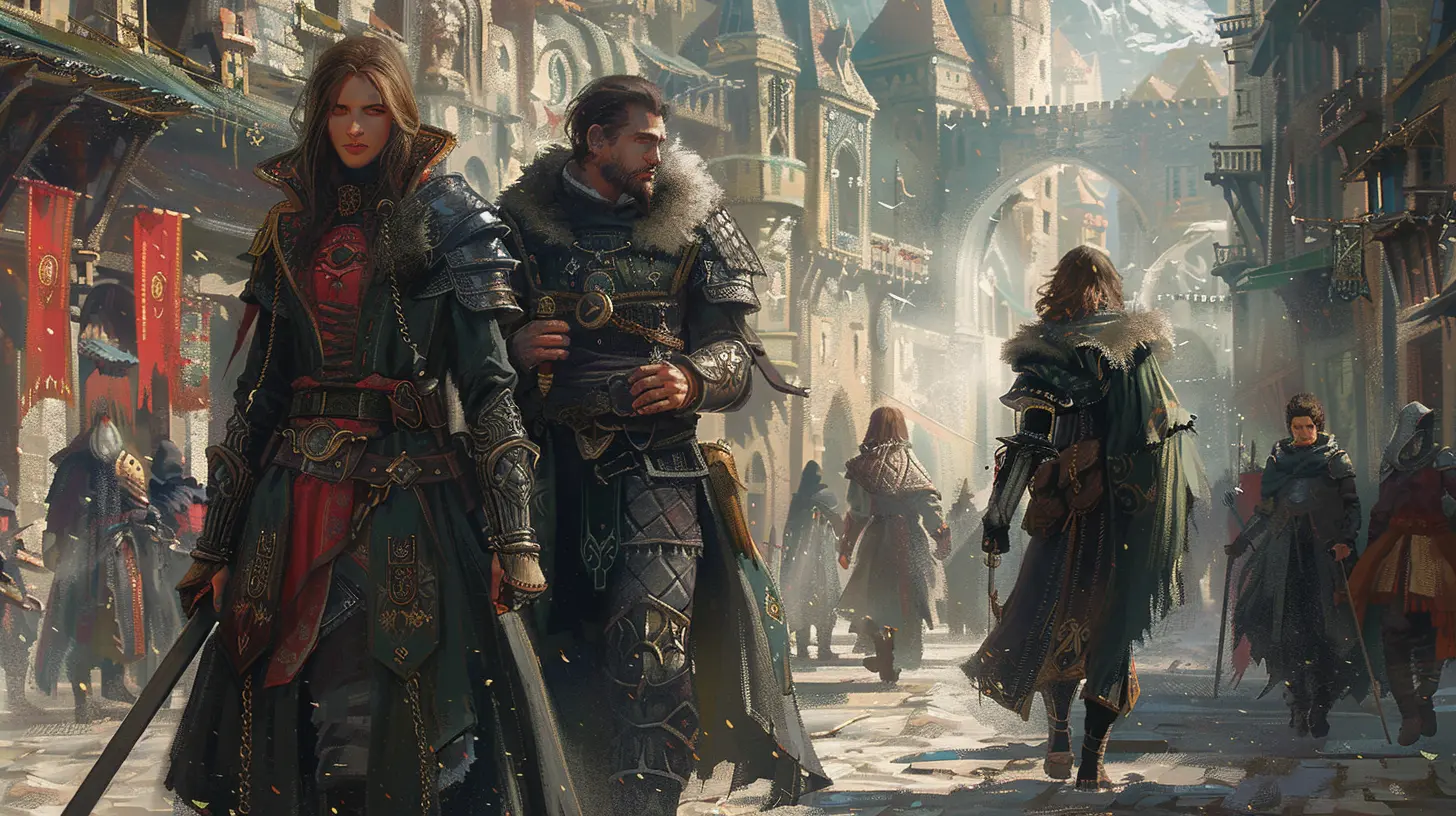
Dynamic Dialogues & Choices Matter—A Lot
A great RPG isn’t just about slaying monsters—it’s about making tough calls that ripple through every layer of the game. And companions? They're your moral compass… or your chaotic encouragement.Say you decide to burn down a village to stop a plague. Some companions will call you a hero, while others will never look at you the same way again. That’s not fluff—that’s consequence.
And let’s not forget the banter. The real gold is in those unscripted convos. You're trekking through a dungeon and suddenly two companions start roasting each other over past sins? Iconic content. It gives everyone personality and makes the world feel alive.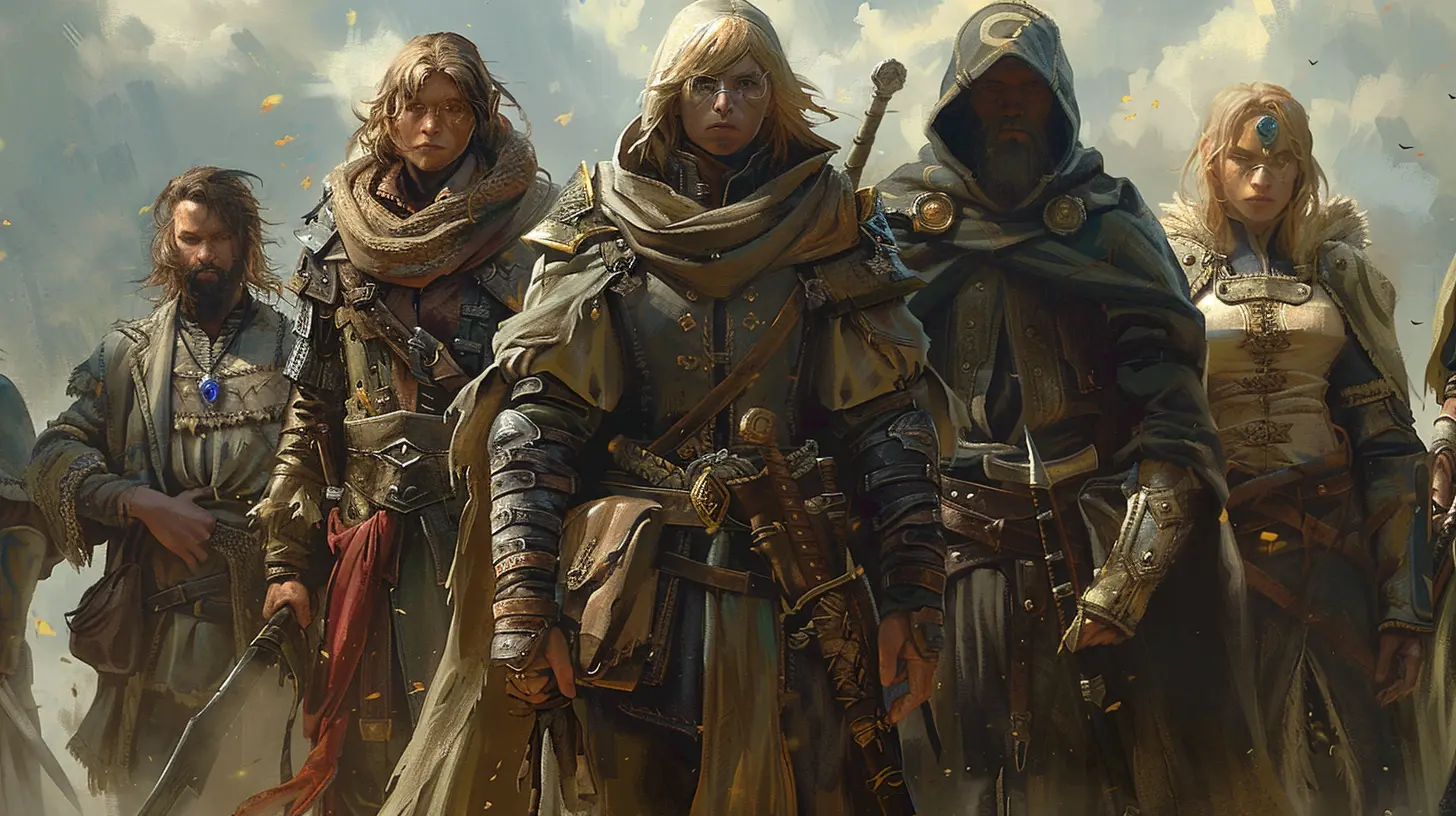
Romance That Goes Beyond Flirty Dialogues
Ah yes, the seductive side of adventure. Romance in fantasy RPGs isn’t just a side hobby—it’s a full-blown emotional investment. And let’s face it, many of us spend way too much time picking the perfect flirty line just to woo our pixelated soulmate.But it’s more than steamy dialogue—romantic arcs often go deep, touching on trauma, growth, and trust. You’re not just dating a character; you're building something that evolves with the story.
From Triss and Geralt to Shadowheart and You, these virtual love stories are every bit as powerful (and sometimes way healthier) than any soap opera.
Companions With Conflicting Agendas = Drama Gold
Fantasy RPGs thrive on tension, and no one brings spice like a companion with a hidden agenda. Maybe the cleric in your party is secretly working for a dark god. Or the bard has ties to that enemy faction you just wiped out.This conflict adds depth. It forces you to consider each companion’s values, loyalty, and long-term plans. And when the moment of truth hits? That plot twist feels earned.
These aren’t just characters—they’re players in the grand narrative, with stakes and secrets of their own.
They Influence the Ending—Because Of Course They Do
Your choices don’t just affect you—they shape the lives of everyone around you, especially your companions. Who lives, who dies, who rises to greatness or spirals into darkness—it all depends on how you treated them.Think about The Witcher 3—helping your allies can completely reshape the outcome of the final battle. Or in Dragon Age: Inquisition, your inner circle’s trust in you determines who stands by your side when everything falls apart.
So yeah, they're not optional—they’re essential. The shape of your ending is basically a mirror of your relationships.
They Teach You To Roleplay Better
Here’s something wild: your companions can actually help you become a better player. Not in the “min-max your stats” kinda way—more like, they encourage you to commit to your character's identity.They challenge your convictions. Make you think twice about a decision. Push you to roleplay not based on the "best outcome," but based on what your character actually believes.
That’s narrative gold. It takes you from “I’m playing a game” to “I’m living a story.”
The Unspoken MVPs of Worldbuilding
Fantasy RPG worlds are massive, but without companions, they can feel empty. Companions act as your tour guides, historians, and culture experts.They tell tales about regions you visit, comment on politics, or throw shade at how cold the mountains are. Their insights give texture to the world. Without them, you’d just be staring at pretty pixels.
And let’s not ignore how certain companions unlock quests, stories, and locations you'll never see otherwise. Basically, they ARE the lore in many ways.
Squad Goals: Diversity in Personalities & Backgrounds
A bland party is a crime against fantasy. The best RPGs mix things up—a rebellious elf, a brooding dwarf, a talking cat-wizard (it’s fantasy, anything goes). This diversity isn’t just for flavor; it builds richer stories and dynamics.Different backgrounds = different perspectives. You see the world through their eyes. And when all these contrasting characters argue, flirt, fight, and make peace? That’s narrative dynamite.
It’s the kind of squad chaos we live for. Like a dysfunctional family reunion, with swords.
Replay Value? Through the Roof
You know a game is built different when your fourth playthrough still feels fresh—just because you picked a different squad. Maybe this time you sided with the morally grey assassin instead of the noble paladin. Boom, new storyline unlocked.Changing your companions doesn’t just spice up the banter—it literally rewrites the plot, affects decisions, and tweaks your ending.
So yeah, that’s why players sink 200+ hours into these games. You’re not just chasing achievements—you’re chasing new relationships and fresh narrative possibilities.
When Companions Steal the Show
Sometimes? The protagonist is kinda... meh. But the companions? Absolute stars. They dominate fan discussions, get spin-offs, and inspire fan art, cosplay, and endless memes.Ever heard of a game getting carried by its supporting cast? That’s the power of well-written companions. When a side character becomes the icon of the franchise (cough cough Varric from Dragon Age), you know the devs did something right.
They become household names in gamer circles. And you better believe fans will riot if their fave doesn’t make it into the sequel.
Final Thoughts: Friendships That Outlast the End Credits
When the end credits roll and you finally hang up your sword, it’s not the loot or XP you remember—it’s the friendships. The laughs, the betrayals, the campfire chats. The moments you shared with the characters who felt real.Fantasy RPGs are more than just “go from point A to B and kill stuff.” They’re emotional journeys. And companions? They’re the soul of that journey.
So next time you start up a new RPG, don’t just think about building your character. Think about your crew. Because in this world of magic and mayhem, no hero should have to go it alone.
all images in this post were generated using AI tools
Category:
Fantasy RpgsAuthor:

Jack McKinstry
Discussion
rate this article
2 comments
Brick McMillan
What a delightful read! Companions truly add magic to our RPG adventures, don’t they? Whether they’re quirky sidekicks or wise mentors, they make every quest memorable. Here’s to forging unforgettable bonds in our fantasy journeys—go team buddy! 🎮✨
November 21, 2025 at 5:55 PM

Jack McKinstry
Thank you! I completely agree—companions really do enhance the adventure and create lasting memories. Cheers to all the incredible bonds we form along the way! 🎉✨
Kaitlin Bryant
Absolutely love this! Companions add so much depth to our journeys. Their quirks and loyalty turn every quest into a memorable adventure!
July 21, 2025 at 3:11 AM

Jack McKinstry
Thank you! I completely agree—companions truly enhance our adventures with their unique personalities and unwavering loyalty.

